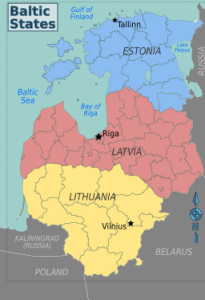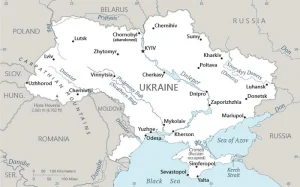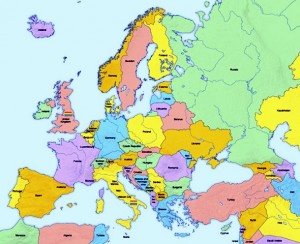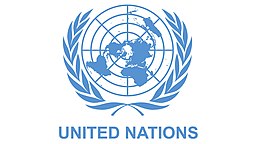While recent national elections in the United States and some other democracies have taken a turn toward the right and authoritarianism, three nations that were once part of the Soviet Union are cutting ties with Russia and its ally Belarus in a courageous, significant way. As of February 8, 2025, Estonia, Latvia and Lithuania have moved their electricity systems to the European Union internal energy market via Poland.
According to the European Commission, this important “marriage” between these three small democratic nations and the EU “contributes to the security of supply of the entire” EU and supports “the integration of renewable energy in the system, ultimately allowing consumers to benefit from lower energy costs.” This project has been in process over the past 15 years, “with unprecedented political, technical and financial backing” to the tune of “over €1.23 billion [$1.269 million] in grants from the EU’s Connecting Europe Facility.”
The way that the transition has unfolded has been well-planned and systematic. “Sixteen power lines that used to connect the three Baltic states with Russia and Belarus were dismantled over the years as a new grid linking them with the rest of the EU was created, including underwater cables in the Baltic Sea. On Saturday [February 8], all remaining transmission lines between them and Russia, Belarus and Russia’s Kaliningrad… will be switched off one by one.”
This initiative took on extra urgency after Russia’s invasion of Ukraine. For Lithuania’s part, while the intent to disconnect from Russia has been in the works for 30 years, the country stopped buying any energy from Russia three years ago in solidarity with Ukraine.  All three Baltic nations have undertaken massive construction projects over the past number of years in order to move toward the West vis-a-vis their energy needs.
All three Baltic nations have undertaken massive construction projects over the past number of years in order to move toward the West vis-a-vis their energy needs.
As might be expected, Russia did attempt to thwart these plans in various ways. The countries’ leaders are continuing to be vigilant against cyberattacks, including extensive cybersecurity measures. Latvia has increased its armed forces and national guard activity, identified the risks and put contingency plans in place. In Estonia, sales of generators have been brisk. In addition, “propaganda campaigns cropped up on social media and in printed leaflets in city streets that issued fake-news warnings about blackouts, severe energy shortages and sky-high energy bills for consumers.” A retired teacher in Vilnius, Lithuania, had the proper response to the disinformation campaign: “We heard those rumors, but we are used to such things already. Of course we must disconnect from [Russia].”
Short Overview
Americans most likely know very little about any of these countries unless they have specific connections with them. All three nations are on the south side of the Baltic Sea; to the north lie Sweden and Finland, with Germany to the south and Denmark to the west.  All three are members of the following West-leaning organizations:
All three are members of the following West-leaning organizations:
- the North Atlantic Treaty Organization (NATO);
- the European Union, since 2004;
- the Eurozone, the currency zone that uses the Euro;
- the Council of Europe, an international organization of approximately 700 million people that focuses on upholding human rights, democracy and the rule of law in Europe; and
- the Organization for Economic Co-operation and Development (OECD), which has 38 member countries that strive to stimulate economic progress and world trade through a commitment to democracy and a market economy.
All three Baltic countries are classified as high-income economies by the World Bank with a very high Human Development Index (HDI). According to the United Nations, the HDI “is a summary measure of average achievement in key dimensions of human development: a long and healthy life, being knowledgeable and having a decent standard of living.” The combined population of all three nations is approximately 7.5 million.
 Like most other nations of Europe, the Baltics should definitely be considered among our “sister nations.”
Like most other nations of Europe, the Baltics should definitely be considered among our “sister nations.”
Conclusion
We in the US during this challenging time can take heart that there is still a high level of commitment, at least in this part of the world, to principles that most Americans share. The Baltic States have had challenges in their history, as all nations have, but they have demonstrated with this energy project the ability to forge fruitful collaborations over time between not only nations and political actors but also with businesses, investors and other constituents.
EU President Ursula von der Leyen summed up the immense importance of this development: “Today history is being made: the Baltic States are switching on energy independence. The last electricity grids in Europe still linked to Russia are now fully integrated into Europe’s internal energy market, with the support of over 1 billion euros of European funding over the years.  The last remaining electricity lines with Russia and Belarus will now be dismantled. These chains of power lines, linking the Baltic states to hostile neighbours will be a thing of the past. This is freedom. Freedom from threats and blackmail. Congratulations on the start of this new era.”
The last remaining electricity lines with Russia and Belarus will now be dismantled. These chains of power lines, linking the Baltic states to hostile neighbours will be a thing of the past. This is freedom. Freedom from threats and blackmail. Congratulations on the start of this new era.”
Congratulations to these small countries for standing up to Russia in a significant way and for their political will, foresight, courage, determination, financial commitment, and leadership! May we be inspired by them – and find ways in our own country to renew our commitment to democracy, progress and the common good.
